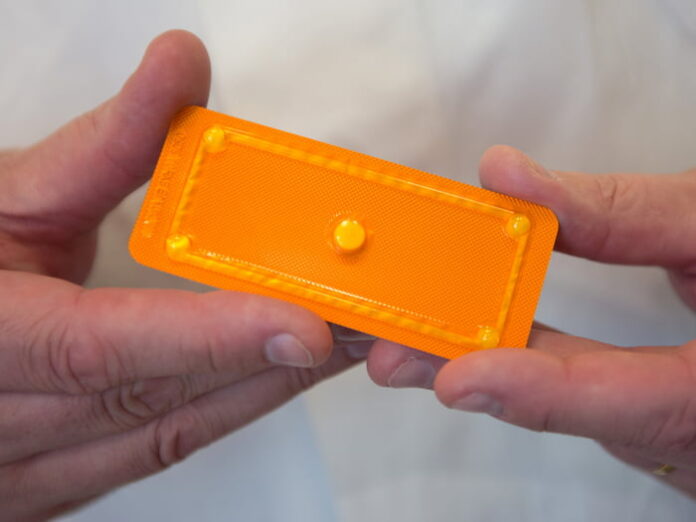One type of emergency contraception is the morning-after pill (contraception). The morning after pill is used to prevent pregnancy by women whose method of contraception has failed or who have participated in an unprotected sexual role. The morning after pill is only supposed to be a backup; It shouldn’t be the primary method of contraception. The morning after pills contain Levonorgestrel (Plan B One-Step) and ulipristal acetate (Ella). Morning after pill cannot end a pregnancy that has already begun. They primarily work by delaying or preventing ovulation. Do not confuse the morning after pill with the abortion-inducing medication. The medication that induces abortion ends a confirmed pregnancy.
How It Functions
Because pregnancy doesn’t happen straight away after having sex, it is possible to prevent pregnancy a few days later. Timing is crucial. As it waits for an egg to ovulate, sperm can stay in your uterus for up to six days after sex.
When women ovulate, the sperm may reach their egg, resulting in conception. The morning after pills work by momentarily stopping your ovary’s release of an egg. It is comparable to emergency ovulation suppression.
The morning after pill’s ability to prevent pregnancy can vary based on your menstrual periods and how soon after unprotected sexual activity you take it. After your body has already started ovulating, taking a morning after pill won’t work.
Ella functions more closely to the period of fertilisation when compared to levonorgestrel morning after pills like Plan B. No matter where in your menstrual phase you are or whether you think you’re about to ovulate, it’s best to start taking contraceptive pills as soon as you can because the significant portion of women do not even know when they ovulate.
Side effects
The following are possible short-term adverse effects of the morning after pill:
– Drowsiness
– Sensitive breasts
– Headache
– Fatigue
– Diarrhoea or nausea
– Lower-back pain or cramping
– Increased bleeding throughout the period or between periods
What choices are there?
You can receive one or two emergency contraceptive pills depending on the type and dose. These include
Levonorgestrel Pill Levonorgestrel is a hormone that can be used as an immediate birth control solution. It can be used to prevent conception following unprotected sex. The “morning after pill” is another name for it.
Ella (ulipristal acetate) Emergency contraception with Ella can prevent pregnancy for up to five days following sex. It is more effective than other morning after pills. A component of ellaOne called ulipristal acetate prevents progesterone from working properly.
Myths About Morning After Pill
It works only on The Morning After
It’s a frequent misconception that the only time to use emergency contraception is within 24 hours of having intercourse. But that is untrue. Certain forms can be taken up to 5 days after having sex.
Unprotected sex should, of course, be followed as soon as possible by emergency contraception (or failed contraception). One tablet, Levonelle, cab be taken three days after engaging in unprotected intercourse, while EllaOne can be taken till five days afterwards. However, these medications are only useful if given prior to ovulation.
Although it’s advisable to try to take a pill as quickly as possible after unprotected intercourse, there are a number of reasons why it would not be possible to obtain emergency contraception right immediately. However, it’s much preferable to obtain emergency contraception later rather than never.
The Risks of Emergency Contraception
The emergency contraceptive pill manufacturers claim that several studies have not discovered any scientific proof that it would harm an unborn child or an ongoing pregnancy.
Additionally, the emergency birth control pill is only successful if used prior to the discovery of pregnancy. The emergency birth control pill will not function if you are already pregnant.
Emergency contraceptive pills primarily block the release of an egg from the ovary, but they can also inhibit fertilisation or prevent the implantation of an egg in the uterus.
Please be sure to speak with your healthcare practitioner if you have any queries regarding the emergency birth control pill or how to utilise it most successfully.
Emergency contraception works every time
This is rarely the case, regrettably. The sort of emergency contraception you use and how quickly after unprotected intercourse you are able to use it will determine how successful it is. Both varieties are quite successful if used during the first twelve to twenty-four hours of the sex. However, Levonelle loses much of its potency after more than 48 hours.
The efficacy of your emergency contraception may also be affected by certain medications you may be taking, such as over-the-counter St. John’s wort and prescriptions for heartburn and epilepsy.
Additionally, as emergency contraceptives prevent or postpone ovulation (the release of an egg), they are unlikely to be effective if used later in the cycle after ovulation has already taken place.
Your fertility may be impacted if you take it frequently
There is no proof that using emergency contraception will affect your fertility in the long run.
You can take emergency tablets as often as necessary, even more than once, throughout a menstrual cycle if necessary. However, taking another type of pill during the same cycle might not be possible. However, utilising other techniques frequently is more effective than taking emergency contraception.”
However, it’s not a wise idea to use emergency birth control methods as your primary method of child prevention. To learn more about your contraceptive options, consult your general practitioner or a nearby sexual health centre.
The morning after pill results in abortion
Only the union of viable sperm and an egg can result in pregnancy. The morning after pill prevents the hormone rush that releases the egg from happening, delaying ovulation long enough for any potential sperm to die. If ovulation is stopped, there will be no egg for the sperm to meet because sperm can survive in the reproductive canal for up to five days.
The morning after pill cannot prevent an already fertilised egg from implanting or impact a pregnancy that had already taken place if ovulation occurred immediately before you had unsafe sex or is presently occurring.
Read Also
- How to Find a 5-Star Dentist Near YouChoosing a dentist is more than just finding someone who can clean your teeth. It’s about selecting a trusted partner in your long-term oral health. A 5-star dentist not only provides excellent clinical care but also delivers a positive patient experience, from the moment you walk in until the moment you leave. Whether you’re new… Read more: How to Find a 5-Star Dentist Near You
- Your Easy-Peasy Guide to Brewing Amazing MatchaHey there! So, you’ve heard all the buzz about matcha – that vibrant green powder that’s not just pretty but packed with good stuff? It can seem a little fancy and intimidating at first, but trust me, making a delicious cup at home is simpler than you think. Forget complicated ceremonies for now; let’s just… Read more: Your Easy-Peasy Guide to Brewing Amazing Matcha
- Embracing Holistic Wellness: Insights from a Lansing, MI Health CenterReframing Health: Moving Beyond Symptom Management Treating only symptoms often offers quick relief, yet long-term results stay out of reach. When care zeroes in on isolated complaints, the bigger picture, such as stress, behavior, or lifestyle, often gets missed. Research shows that whole-person care, which looks at physical, emotional, and environmental factors, yields better outcomes… Read more: Embracing Holistic Wellness: Insights from a Lansing, MI Health Center
- VO₂ Max Testing Explained: What It Is & Why It Matters for Your HealthVO₂ max sounds like a term reserved for elite athletes, but it’s among the most accurate measures of your lifetime and general condition. Moreover, it goes beyond performance. Monitoring your VO₂ max will help you to ascertain your body’s capacity to control stress, its oxygen consumption efficiency, and your internal ageing process. If you have… Read more: VO₂ Max Testing Explained: What It Is & Why It Matters for Your Health
- So, what exactly is matcha?Think of matcha as green tea turned up to eleven! Instead of steeping leaves and tossing them out, matcha is made by grinding whole green tea leaves into this super-fine, vibrant green powder. You whisk it right into hot water (or milk!), meaning you’re drinking the entire leaf. That’s why folks say you get way… Read more: So, what exactly is matcha?
- How to Tell When It’s Time for Professional Senior Care SupportCaring for an aging loved one is a journey filled with love, patience, and difficult decisions. One of the toughest choices families face is knowing when it’s time to seek extra help. In this article, trusted Los Angeles caregivers for seniors explore the signs that it might be time to bring in professional support, not… Read more: How to Tell When It’s Time for Professional Senior Care Support







